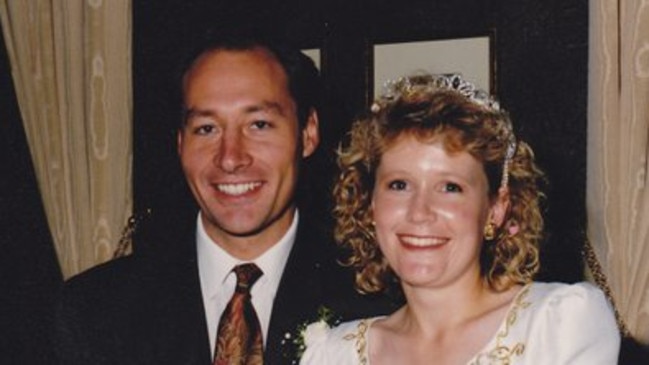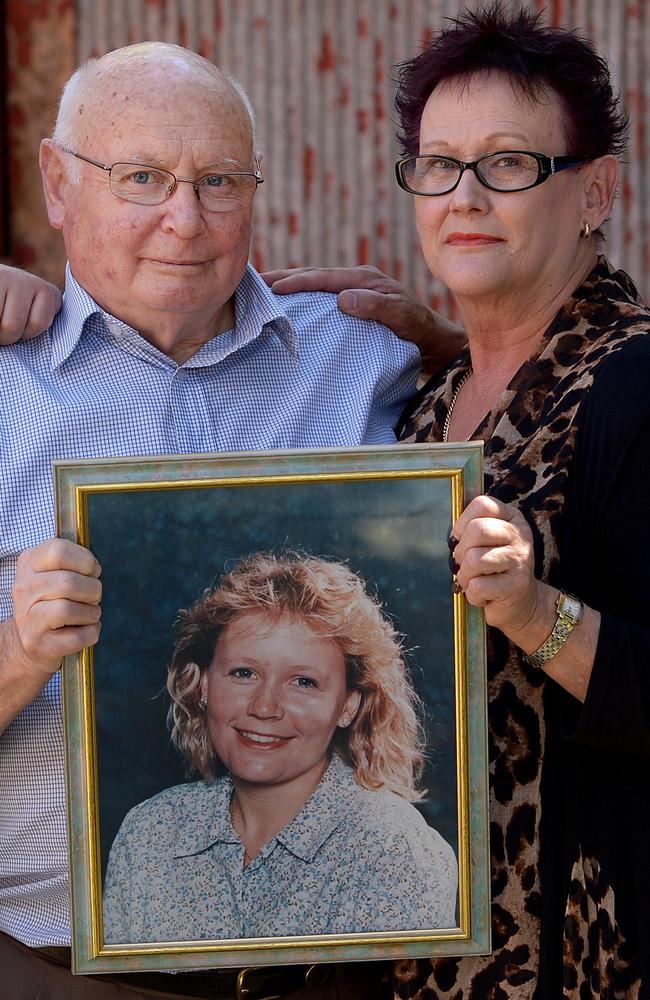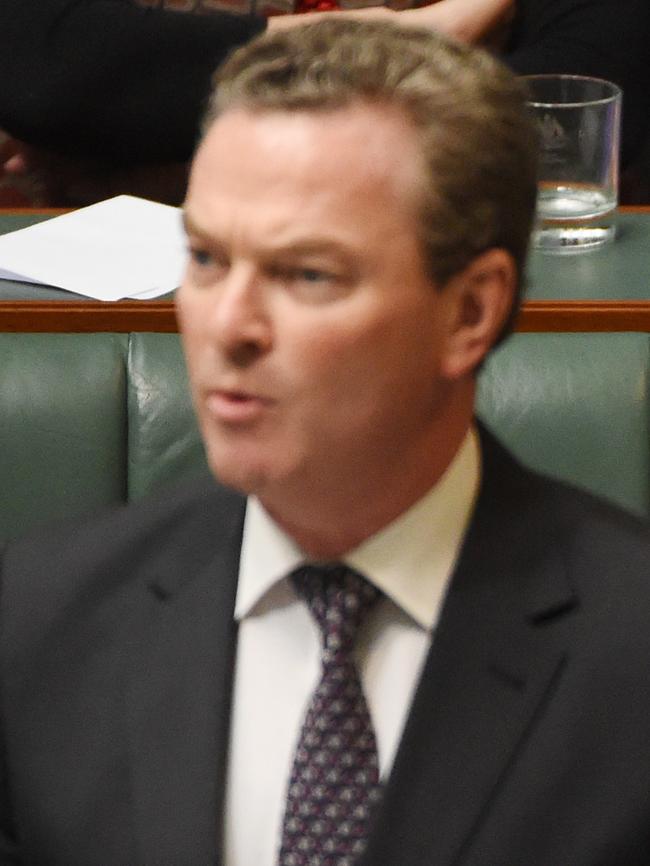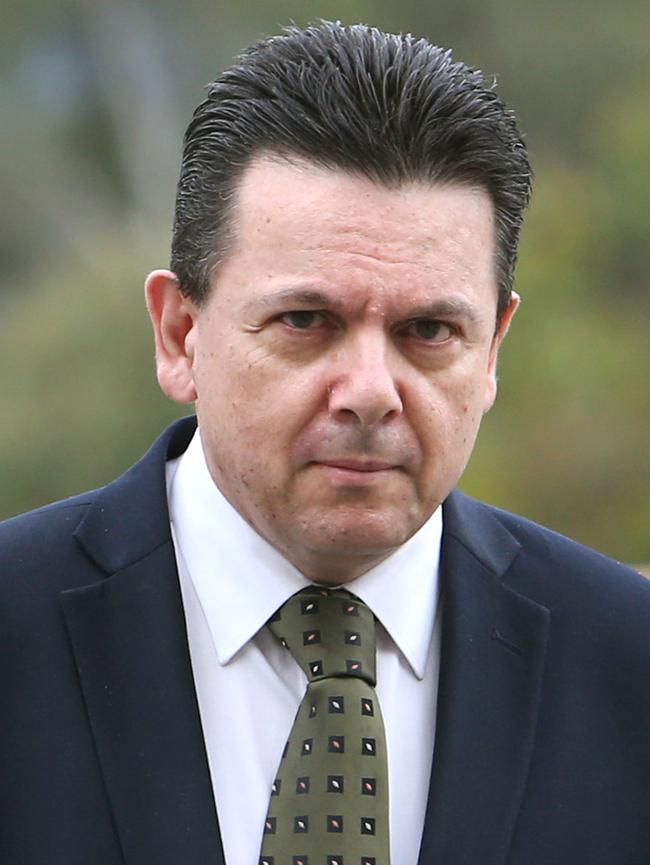Anthea Bradshaw-Hall: Law change opens door to charge suspect in Brunei murder cold case
IN a landmark move, authorities will change the law to allow an alleged murderer to be prosecuted in South Australia for a killing committed overseas — and the victim’s family is elated.

SA News
Don't miss out on the headlines from SA News. Followed categories will be added to My News.
- Federal law urged to try Anthea Bradshaw-Hall murder case in SA
- Stalled move to bring murder suspect to justice in SA
THE family of Adelaide schoolteacher Anthea Bradshaw-Hall, murdered in Brunei two decades ago, is a crucial step closer to justice through plans for law changes.
The Federal Government will today move to amend legislation introduced after the Bali bombings so that South Australian police can charge the only suspect and try him in Adelaide for murder.
The move, which will make the Criminal Code Act retrospective to cover the 1994 murder, will remove the legislative barrier that has provided virtual immunity for the suspect.
The amendment will be introduced by Industry Minister Christopher Pyne in the lower house and Attorney-General Senator George Brandis and independent South Australian Senator Nick Xenophon in the Senate today.
It is expected to be supported by the Opposition and minor parties.
It has been carefully drafted to ensure that both a charged person’s civil rights are not infringed and to withstand any possible future legal challenge.
Anthea’s parents, Martin and Ros Bradshaw, yesterday welcomed the move.
“It has been a long and protracted process since Anthea was murdered,” Mr Bradshaw told The Advertiser.
“It preys on your mind on a permanent basis.
“Once the amendment to the Act has been passed, the evidence can be tested in court in South Australia. That is all we have ever been asking for.’’
Mrs Bradshaw said she wanted to see the person police believed responsible for Anthea’s death “held to account for their actions that day”.
“This is huge part of that process,’’ she said.
Anthea’s brothers, Craig and Paul, both said the government move was “a significant step’’ in their quest to obtain justice. “We are both grateful the government is also determined to see justice served,’’ Craig said.

“It has been a long process to get this far, but Anthea deserves nothing less.’’
Anthea Bradshaw-Hall, 26, was murdered while visiting Brunei on July 21, 1994.
The former teacher at Fraser Park Primary School, Murray Bridge, was about to move to the sovereign state on the island of Borneo with her husband, Jeff Hall, who had secured a job there.
Mr Hall, who now works for Toshiba in Tokyo, told police he found his wife dead on the floor of their apartment.
She had been strangled and then stabbed four times.
Brunei police will not prosecute the only suspect in the case because they do not believe they have enough evidence but, in an unusual move, the SA police Major Crime Investigation Branch launched an investigation in 2004 into Ms Bradshaw-Hall’s death after being approached by her family.
As part of that inquiry, a detective flew to Brunei to conduct inquiries and returned with crucial evidence that was then tested by forensic experts in Australia.
The investigation uncovered considerable evidence implicating one suspect.
Former Director of Public Prosecutions Stephen Pallaras, QC, revealed to the Sunday Mail in 2013 that he believed there was enough evidence to charge the suspect and prosecute him in Australia, but that this could only be done if the Criminal Code Act was amended to give it retrospective power.
The Bradshaw family made its first plea to the Government to change the legislation in 2013.
Senator Xenophon last year introduced his own amendment to the Criminal Code Act. Since then, the Government has been examining his Bill and has now opted to make its own changes, largely encompassing the original amendment.
Mr Pyne, a key proponent of the amendment who is also the Bradshaws’ local MP, yesterday said there were several safeguards in the legislative change to ensure the rights of anyone who may be charged.


These include a double-jeopardy provision and ensuring any sentence imposed by an Australian court would not be greater than it would in the country in which the crime was committed.
“You will not be able to be prosecuted for a case in which you have already been prosecuted and there is no issue with the retrospectivity because there is no jurisdiction in which murder and manslaughter are currently legal,’’ Mr Pyne said.
“The other safeguard is that we will not be applying any penalties for a person who is found guilty that would exceed the penalties in the country in which the crime was committed.’’
Mr Pyne said the move was “significant’’ and such legislation had only been introduced once before – in response to the 2002 Bali bombings, a terrorist attack that claimed the lives of 88 Australians and more than 100 other people.
“If it was a legitimate thing to do for the Bali bombing victims, it is a legitimate thing to do for any Australian victim of a killer no matter how long ago it was,” he said.
“That is the logic that has informed my thinking and the government’s thinking.
“This is a change in the law that will affect every family who has suffered the loss of a loved one by a killer who has never been prosecuted.’’
He said the Bradshaw family had left a lasting impression on him because of the manner in which they had dealt with the tragedy.
“I think the Bradshaws are a very regular Australian family who have been through an appalling trauma. I hope this will bring some closure to the pain they have viscerally suffered,’’ Mr Pyne said.
“I think they have also been incredibly patient and generous.’’
Senator Xenophon said the amendment was a “tribute to the Bradshaw family and their love for Anthea”.
“They have never given up in their quest to find justice for Anthea,’’ he said.
“It has been a long, hard road to get to this point. It is a very big step.’’
Senator Xenophon also praised Mr Pyne and Senator Brandis for recognising the injustice the family had been confronted with.
“This is beyond politics and both have realised this,” he said.
“Their backing has been tremendous.’’
Commissioner for Victim’s Rights Michael O’Connell, who has been assisting the Bradshaw family, said they had been forced to wait “too long for justice”.
“The trauma of bereavement has been made worse by the decision of the Brunei authorities not to try the suspect and the prohibition on prosecuting him in Australia,’’ he said.
“The Bradshaws have not been able to finish grieving because they have waited too long for justice.
“What has happened to the Bradshaw family is unacceptable, and it should not be allowed to happen to another family.”
Mr O’Connell urged MPs to pass the legislation rapidly.
“Parliament can never make all things right for this family, but they can pass law that offers Anthea’s family hope that their long wait for justice might end,” he said.
“As a society, we surely owe them respect and access to justice. This is not about removing rights from defendants but balancing up the law so that it is fair, just and equitable for the victims of homicide and their families.”


